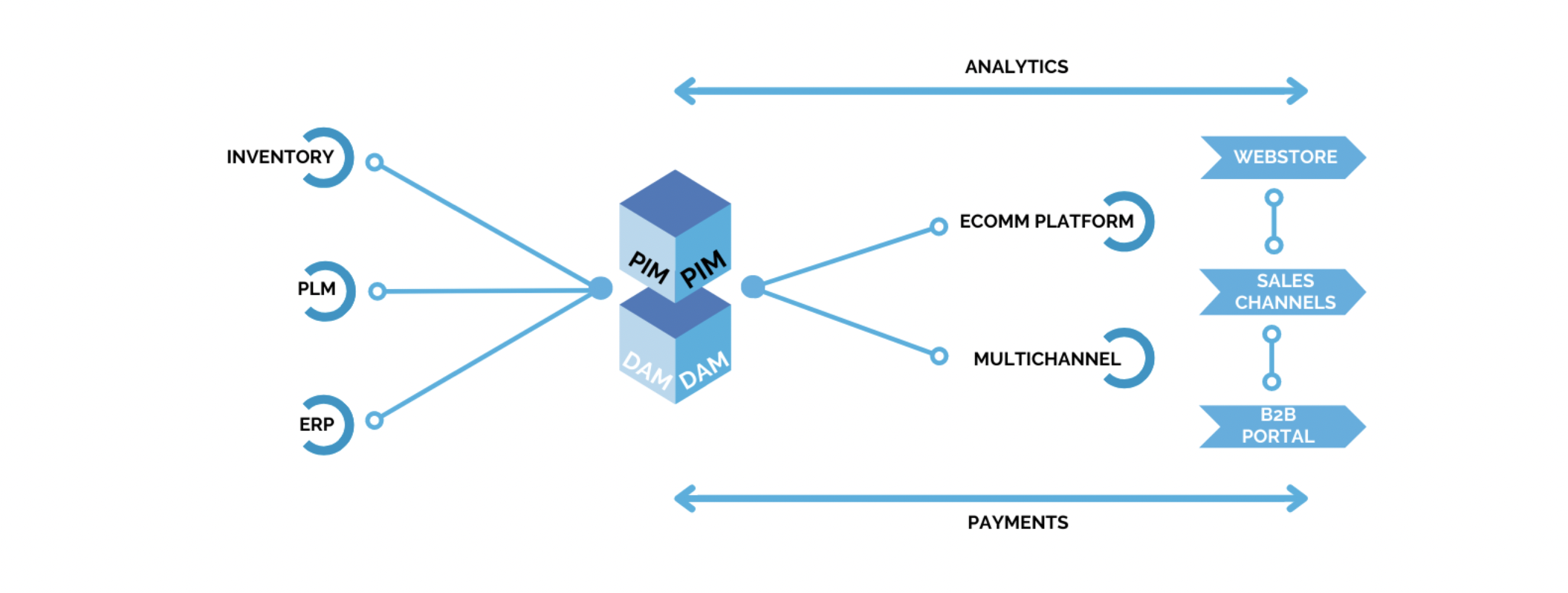Product Data Quality: 4 Ways to Enhance Product Data
Product data quality sits at the center of modern commerce. From eCommerce sites and marketplaces to ERP systems and printed catalogs, every customer interaction depends...
Published: Sep 30, 2022 Updated: Sep 17, 2025
Centralizing your product information provides you with a reliable source of truth, otherwise known as your “golden record.” A product information management system (PIM) is a centralized hub where you collect, enrich, edit, share, and upload product data. As a result, your product information can be used across your entire enterprise to ensure consistency and improve customer experiences. Here’s how a PIM creates your golden record.
Although spreadsheets were once the go-to tool for managing data, they fail to meet the needs of today’s growing eCommerce enterprises. When you’re dealing with data across thousands of SKUs and requirements for varied formats across multiple marketplaces, spreadsheets fail to provide the organization and efficiencies you need.
You can stop relying on spreadsheets with a PIM, which collects raw data and enables you to enrich and manage product information to suit your needs. You can manage product information in bulk or SKU by SKU without blinking an eye or worrying about inconsistencies. Instead, everything remains up to date, providing a single product data source of truth.
Easily assign attributes for all your SKUs from one central location. Product attributes define specific product characteristics such as size or color. They help create a logical order to your products to make it easier for customers to find what they need. Attributes also facilitate product searches, with filters based on refined details. A PIM enables you to easily assign attributes and manage them from your source of truth, providing you consistency across all channels.

The demands for product information management are ongoing and consist of repetitive tasks that lead to boredom and increased risk for errors. Using a PIM frees your team from the types of tasks that interfere with job engagement. Because you eliminate the need for spreadsheets, your team can enjoy a faster product onboarding process so they can focus on expanding SKU counts to remain competitive.
Their jobs become more strategic because they can automate up to 80% of manual product data management processes. They can set up new sales channels without the worry of meeting different requirements as they can tailor product data to suit formatting needs. Validations also ensure all product content is accurate and complete to avoid time-consuming error correction and eliminate duplicate work.
A PIM makes it easier for multiple teams to collaborate or access product data as required from a single source of truth. The eCommerce team better understands demand to make informed decisions on inventory numbers as well as the marketplaces that will help increase online revenues. IT teams can spot opportunities to improve the tech stack and streamline the system to reduce downtimes and disruption to service.
Product/Category Managers create product lifecycles to set criteria prior to uploading data. All departments can work collaboratively to ensure data is consistently based on the brand or compliance regardless of the channels used. Merchandisers can create immersive customer experiences using high-quality, informative product data, which in turn enables marketing to create more effective campaigns. You streamline processes across the entire company to become more scalable so you can reach more sales channels and expand to more geographies.
Resource
Curious to see what else you can streamline?
Whitepaper: Making the Business Case for a PIM
If you work with different suppliers and vendors, you can share product information from your golden record with confidence. Accurate product information can be shared from a secure PIM whether you are providing product data to an outsourced marketing company or receiving data from a supplier or vendor. You can upload and download information based on authorization and limit the types of tasks users can perform, whether it is read-only or editing capabilities. You maintain a secure loop, so you have complete control over how product data comes and goes from your business.
A single source of truth makes it easier to prevent deviations and errors. For example, if information is missing or inconsistent with preset product life cycle criteria, the system immediately notifies the right team members. This ensures you comply with the standards you have set. Automation also ensures all product information is properly vetted based on product standards prior to reaching customer touchpoints. This also reduces the risk for returns, as product information is always correct.
Your PIM is a hub for everything product-related, requiring fewer spreadsheets and offering seamless alignment with your DAM. Everyone who requires input or access to your product data can confidently find up-to-date, consistent information based on the specifics of the format they require.
To learn more about what a PIM can do for you, click below to book a demo.


